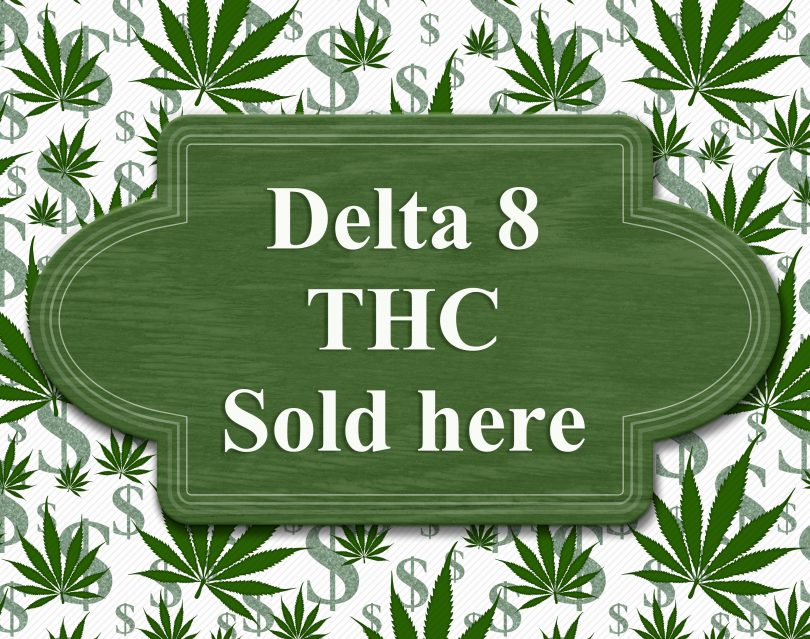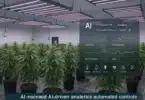The subject of delta-8 and the cannabinoids market is an extremely controversial one, and different groups have their own take on the legality of the situation. Individual states have been instituting their own policies to allow or ban the substances; and such is the current case with Virginia, which is trying to ban delta-8 THC through a last minute add-on to a bill.
An edit to a Virginia bill by the governor would redefine THC, and illegalize the sale of delta-8 and other cannabinoids outside of dispensaries. Will the edits be nixed? We’ll find out later this month! We’re all about covering the quickly expanding world of cannabis. Keep up by subscribing to the THC Weekly Newsletter, and get your daily dose of industry news, along with access to deals on products like vapes, edibles, and other paraphernalia, and cannabinoid compounds, also. Just remember, *cannabinoid products aren’t for everyone, and no one should use a product they are uncomfortable with!
What’s the news?
As states legalize cannabis, they are able to institute their own regulations, and these regulations don’t have to be consistent among states, or the federal government (which still holds it all as illegal). In doing so, different states have reacted differently to the cannabinoids market, which includes delta-8 THC, HHC, THCO, and other compounds. The latest to do something about it, is Virginia, with SB 591, a bill to define the upcoming regulated cannabis sales market.
On Monday, April 11th, Virginia’s Governor Glenn Youngkin, made edits to SB 591 on the last allowable day he had to approve the bill. These last minute changes redefine the term ‘THC’, though the bill was already approved by the General Assembly with a standing definition. This new definition of ‘THC’ for Virginia, doesn’t specifically mention delta-9, and is worded to ban the sale of isomers like delta-8 outside of legal dispensaries, by grouping THCs together.
It should be remembered, that ‘THC’ only refers to the term ‘tetrahydrocannabinols’, and not specifically delta-9 THC. In this way, while why it was done is not explicitly clear, redefining ‘THC’ to include all THCs, does make sense. In reality, this is actually not a major change from the standard definition, but works to emphasize that cannabinoid products can’t be sold illegally.
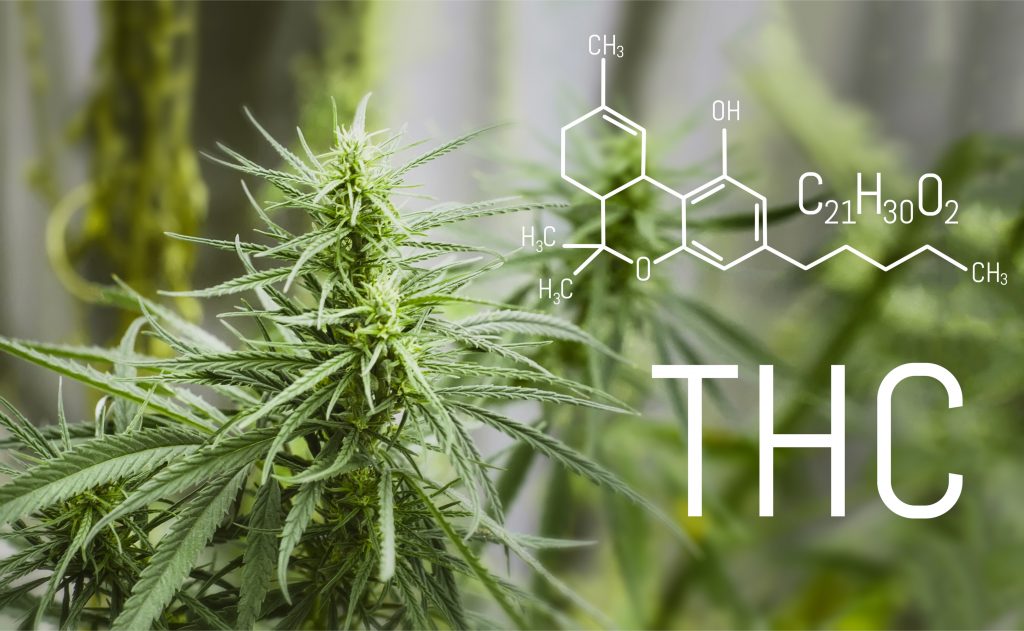
According to Youngkin, in a statement to WTKR, a Norfolk TV station, “Delta-8 is, in fact, basically marijuana, and marijuana is prohibited from being sold right now.” Should it go into effect, the policy would begin on October 1st, however, it’s not technically a done deal. The legislature is still capable of overriding this decision with a 2/3 vote, which is possible considering these add-ons might not be appreciated. In that sense, the last minute edits are more of a proposal, than the official passage of a law. Whether they stay or not will be decided on April 27th.
Technically, Virginia legalized recreational cannabis in 2021, after decriminalizing it the year before. A fully regulated recreational sales market is expected to begin in early 2024. Even so, other aspects, like legal limits and punishments, are already in place.
What about smokable hemp products and misdemeanor charges?
In regards to the edits, Governor Youngkin explained further to News 3, “There’s not a market, so this was a good clarifying amendment in order to treat Delta-8 along with Delta-9 in the same category, while preserving all the access for CBD products.” However, the edits covered more than just a definition of THC.
The Governor’s edits would also ban the sale of edible hemp products in the shape of people, animals, and fruit. While this is undoubtedly a measure to try to dissuade children from wanting to eat said edibles, how useful a stipulation like this is, is hard to say. Luckily, this isn’t that big of a deal, though some of the other add-ons are.
Another issue, is the edits work to limit smokable hemp sales to those 21 and above only, which include all CBD products. This means adults 18-21 wouldn’t be able to buy smokable hemp or CBD products, and they’d be treated much the same as regular cannabis. And even more questionable, the edits include charging a misdemeanor offense to people with more than two ounces of cannabis in their possession. Currently, being caught with between an ounce and a pound incurs no more than a $25 civil penalty. This idea to charge for over two ounces as a misdemeanor, came from another recommendation from the Joint Legislative Audit and Review Commission. It’s a strange direction to go in considering Virginia is a legalized state.
To his credit, while Youngkin certainly pulled some interesting last-minute moves in terms of defining THC, limiting smokable hemp products, and criminalizing over two ounces, he also signed a bill that will expand Virginia’s medical marijuana program to allow greater access to patients. This includes removing the requirement for medical cannabis patients to register with the Virginia Board of Pharmacy, and takes away mandates for active ingredient ratios for medical cannabis products.
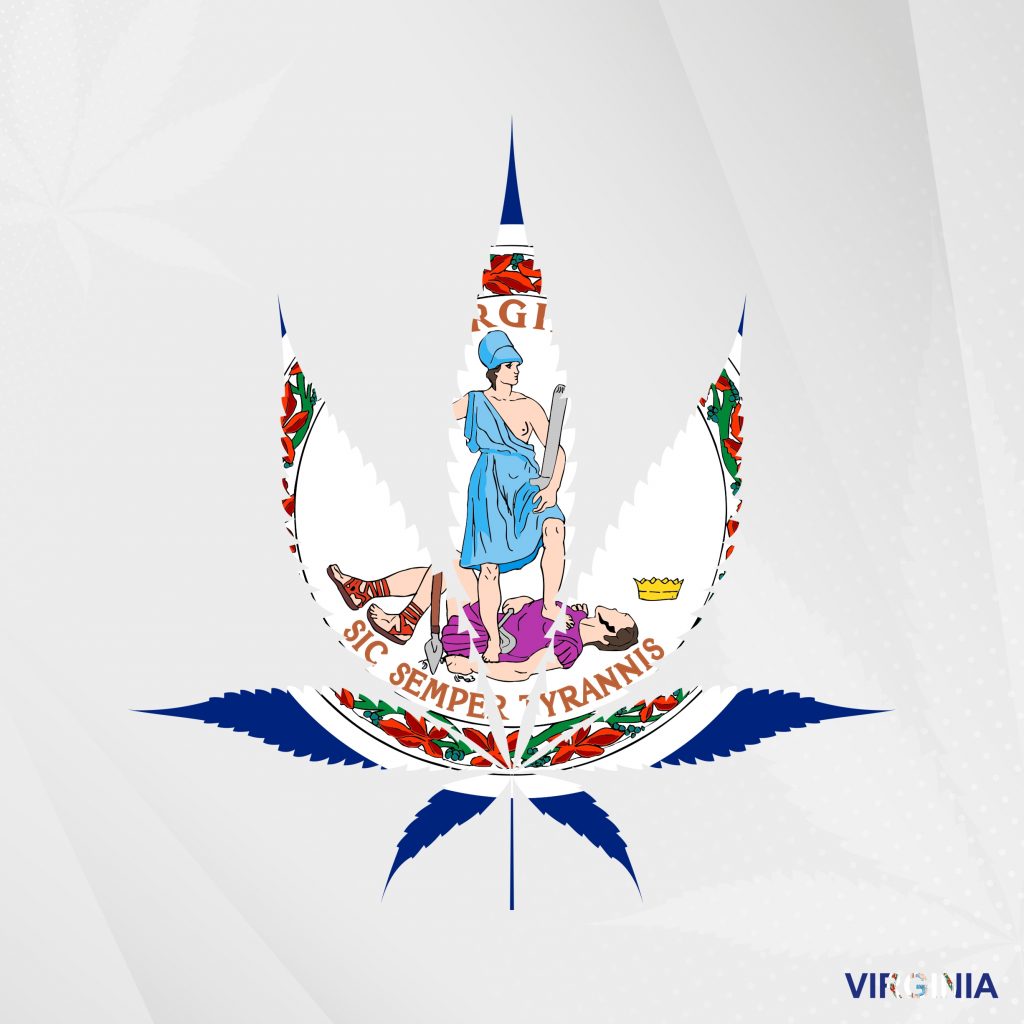
Reactions to Virginia proposal to ban delta-8
As expected, the hemp industry is none too happy with these edits that redefine THC in Virginia and ban delta-8. According to Virginia Hemp Coalition President Jason Amatucci, “We feel surprised by some of the misguided proposals in the bill. This bill will hurt job creation, hurt the economy, hurt farmers, and take away many legitimate rights for hemp consumers.
This sentiment was put more outright by president of the Virginia Healthy Alternatives Association, Yan Gleyzer, who had this to say about it: “Unfortunately, this bill turned from bad to worse… We do have to have some regulations,” but that, “we cannot wipe down the entire market because of one product.”
In reaction to the possible further criminalization of over two ounces of cannabis, the group Marijuana Justice answered this with Executive Director Chelsea Higgs Wise saying, “That’s what these new crimes do – they take people from experiencing what could be a $25 ticket to possibly spending time in jail or prison [if they’re] caught more than once with this new misdemeanor.”
On April 27th, we’ll find out if Virginia legislators agree with these ‘proposals’. If nothing else, it bears mentioning that waiting till the very last minute to change a bill that was already approved by the government, (with several extreme changes), is questionable in and of itself.
How did Virginia legalize recreational cannabis?
Virginia is interesting because it’s a southern state which has been leading the charge for cannabis legalization in that region of the country. Virginia made great strides very quickly, going from a more restrictive state, to one of 18 with a recreational legalization.
Laws started changing in April 2020, when a decriminalization bill was signed by Governor Ralph Northam. This decriminalized up to one ounce for personal use, and went into effect on July 1st, 2020. It made offenders within the limit subject solely to a $25 fine. In Spring of 2021, this was pushed up a notch when a bill amended by Northam was approved by both sides of Congress, which legalized recreational cannabis with possession up to one ounce. A retail market is slated to start in January of 2024.
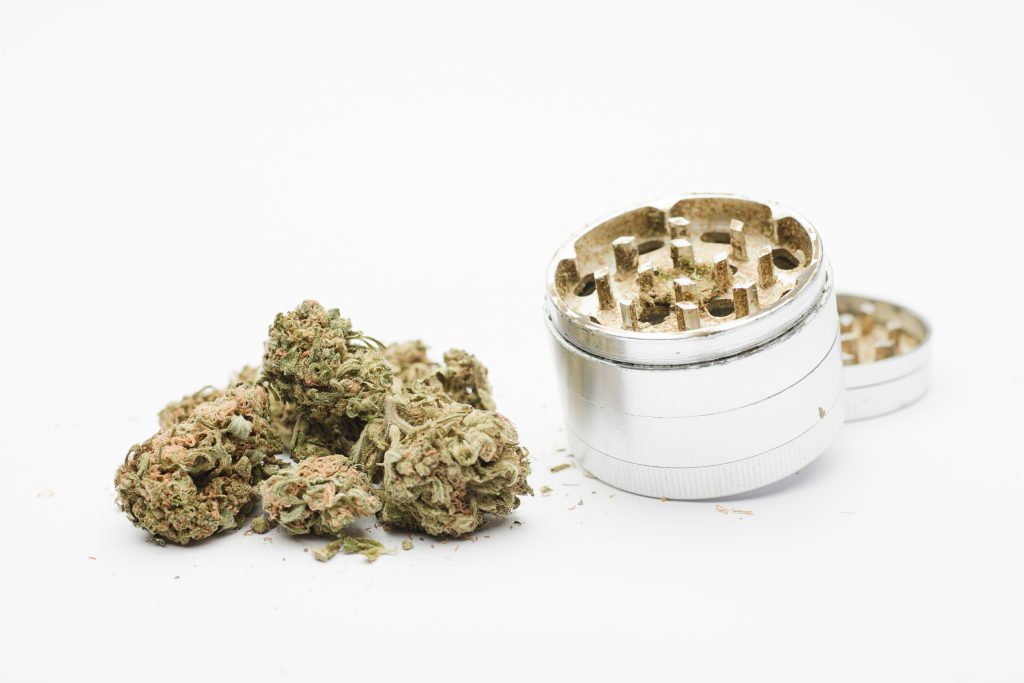
Interestingly, Virginia holds a certain designation when it comes to cannabis policies. Though it wasn’t the first state to legalize a comprehensive medical cannabis program, it was the first state to introduce some kind of medical cannabis authorization. This happened back in 1979 when Virginia reassessed its drug laws, leading to the inclusion of cannabis medicines for sufferers of cancer and glaucoma. Truth is, as nothing else changed at that time – like setting up a market, other then the allowance of such medicines, the change went virtually unnoticed for years, and wasn’t really used. Virginia didn’t introduce a comprehensive medical cannabis plan until 2017.
Conclusion
There is no legal limit for how much alcohol a person can possess, and, in fact, some people have wine cellars with so many bottles, it could be considered intent to sell. Yet somehow that goes under the radar, and the less dangerous option, cannabis, is still riddled with attempts by government to criminalize activities surrounding it, even in legalized locations!!!
What these edits say more than anything, is that the idea of legalization is not being taken seriously. In many places it seems more about bringing in government revenue, than eradicating laws that criminalize the plant. This idea of making it a misdemeanor for over two ounces is a great example of the inconsistency of cannabis legalization, especially as wine cellars are full to the brim.
In terms of Virginia and cannabinoids like delta-8, the idea of changing the definition of ‘THC’ is a little strange, but does make sense. Realistically, ‘THC’ never meant ‘delta-9’, so like it or not, including delta-8 and other cannabinoid compounds along with delta-9, isn’t far out at all.
Thanks for making it to the site! You’ve arrived at CBDtesters.co/cannadelics.com, the preeminent web spot for the most comprehensive independent news coverage of the cannabis and psychedelics fields. Come by regularly to stay in-the-loop on the fast-paced world of cannabis and psychedelics, and subscribe to The THC Weekly Newsletter, so you’re up to snuff on everything important going on.

